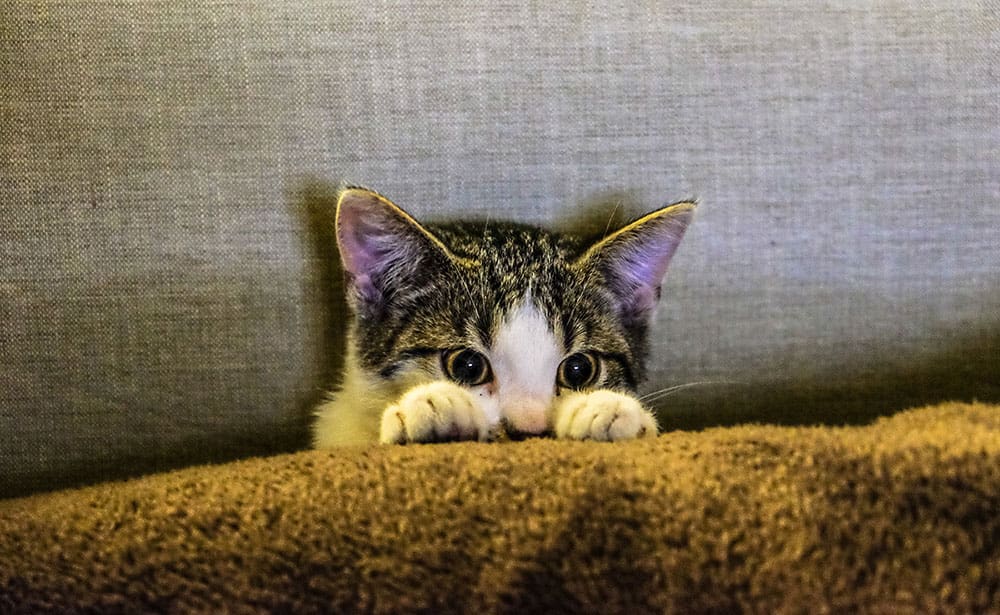If you’ve ever given catnip to your feline friend, you’ve probably witnessed its mysterious effects firsthand and wondered what it is about the herb that makes cats tick. In this article, we hear from a Raleigh, NC vet on this very topic!
We know that a pet owner’s primary concern in their animal’s health, so let’s get the scary question out of the way: Is catnip safe?
Yes! There are no known dangers of giving your cat this tasty treat. In fact, catnip is safe even for human consumption (more on that in a bit). For now, let’s explore what makes this herb so irresistible for felines!

When we say irresistible for felines, we truly mean all felines: not only are domesticated cats attracted to the plant, but their larger, wilder cousins are as well! Indeed, catnip has been known to pique the interest of cougars, lynx, lions and tigers, to name a few! This link among all cats is important for a couple of reasons. For starters, now you know what NOT to bring the next time you go hiking or camping! Secondly, this revelation led scientists to discover that cats are especially sensitive to the herb: their noses contain special receptors that match perfectly with nepetalactone, the compound found in catnip. Add to the fact that there are over 250 varieties to choose from, your cat is has plenty of opportunities to experience this interaction firsthand!
As the above title implies, cats can have vastly different reactions–or even no reaction at all–to catnip! It’s an acquired taste… literally: kittens don’t seem to notice it until they’re a few months old! Additionally, research suggests that the herb only affects around two thirds of felines, while the remaining third simply go about business as usual. The good news is that figuring out if your cat loves catnip is easy: simply pour a small amount into a bowl and show it to your kitty. Like we mentioned above, reactions will vary, but they usually take one of two courses: your cat could become energetic and excited, demonstrated by running around, “talking” (meowing) a lot, or playing with other pets; alternatively he/ she may become drowsy, evidenced by yawning, drooling, or simply falling asleep!
 How long do the effects last?
How long do the effects last?Let’s say your fluffy friend does have a taste for the herb. How long will he/ she be bouncing off the walls or snoozing lazily in the corner? These effects are very short lived, typically wearing off in 15 minutes or less. He/ she also won’t be susceptible to it again for about two hours thereafter: your kitty’s brain needs some time to “reset.
If you’re looking for one more way to bond with your feline friend, look no further than catnip! Believe or not, this herb can be used to make soothing teas that are perfectly safe for human consumption. Catnip is also an effective (and safe) repellent for some commonly invasive bugs like cockroaches and mosquitoes. And if you have a green thumb, catnip makes a wonderful addition to any outdoor planter or indoor garden. Just remember that your kitties may develop a knack for gardening themselves!
Interested in learning more about pet health and care? Contact us –your Raleigh, NC pet hospital– today!